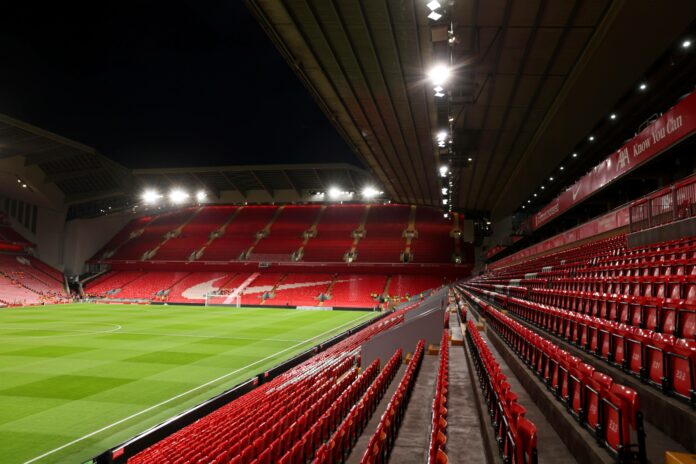At this point, there’s no denying that the legalisation and popularity of sports betting have passed an incredible threshold that shows just how much people have been waiting to be able to wager on sports legally. The global sports betting market is insanely rich, and the UK itself has its own immense share. As we will see, the importance of the sports product it produces also happens to be extremely lucrative.
However, it’s really interesting to see how trickling and portioning work on a worldwide scale. The current storm of sports betting goes beyond reasonable expectations. Instead, growth is at an all-time high, and the merits of this phenomenon are based on various standout factors.
From worldwide internet access rates to better broadcasting and streaming conditions, accessing all kinds of sports has become much easier than before. Gambling legislation is more open across numerous markets, not to mention the betting infrastructure. BetOnValue alone has identified and stacked countless bookmakers that compete with incredible platforms and competitive odds in order to attract more clientele with diverse staking opportunities.
However, the ultimate factor behind this phenomenon is the passion for the sports that people bet on. Be it the sport itself or the intensity of the competition; players are the true heroes who inspire bettors to do their best and try to predict the outcome of every competition at hand.
This article’s ultimate purpose is to showcase some of the world’s biggest betting markets in terms of popularity and volume. Each league tries to market itself as the alpha sports destination by leveraging tradition, legacy, innovation, or just spectacle!
The Premier League is insanely popular among bettors
Statista’s most recent Premier League study shows that, as early as the 2022/23 season, the market value of sports betting on England’s top flight has surpassed the $77 billion mark, which was almost double when compared to La Liga in the Spanish market. This proves that not only does the reputation of the Premier League have it placed atop the popularity chart, but also its emphatic stronghold on the betting numbers.
What can we take away when we try to see why the Premier League rakes up the biggest money flow from sports betting? Firstly, we need to remember that marketing plays a very important part, as proven by the fact that people worldwide know it as the highest level of national football. Its players, prices, team evaluations, and incredible amount of shared revenue from broadcasting rights speak for itself.
Brits may have an issue with the American way of doing business within a sport they seldom understand, but their business model has always been about monetising the sports product. Partnerships with all kinds of sponsors, bringing social media to the fold, and trying to grow an international audience (especially in North America) have made the Premier League one of the most followed competitions in new market sectors with a lot of financial prowess. Such prowess begets the capacity to use excess revenue in all kinds of ways, including betting.
Since the Premier League and its shareholders have managed to pull the interest of global audiences at large by positioning itself as the paragon of football competitiveness and quality, it’s no wonder its betting market is immense.

The Champions League thrives through a fusion of audiences
In all fairness, we don’t really have conclusive data and evidence on the betting market of the Champions League. What we do know is that the continental cup format is extremely popular – big enough to warrant a civil war among the authorities of football. On one hand, we have the private authorities that represent the shareholders and leaders of the biggest football clubs (with Florentino Perez atop the food chain). On the other hand, we have the governing bodies, the most conflictual of which is UEFA.
The Super League debacle was one thing that we could’ve avoided. We are not saying that the idea was good, or just, or in the spirit of the sport, but it was something that was merely a shake of a status quo that boils down to revenue. UEFA didn’t want to lose its control over the operations and distribution of wealth without taking its own cut. The founders of the project tried to wrestle away that control. What we currently have is a compromise akin to a cold war between the big-money handlers of European football.
Broadcasting revenue is the first thing that comes to mind when it comes to analysing the pie’s slicing. However, betting revenue is, at this point, adjacent to broadcasting revenue. It’s integral to how clubs build their revenue, be it through partnerships or indirect sponsorship money.
The Champions League, or any other offshoot of top international competition in Europe atop the football food chain, is a money printer. It pins the biggest clubs trying to assert European dominance against competitors, especially in the case of weaker internal competitions. Moreover, the money the competition brings is a tremendous opportunity for any small/er club from a weaker federation that tries to get its name heard next to a football giant.
If a David from Eastern Europe faces a Goliath from England, Spain, or Germany were to clash, wouldn’t it sound like a bet almost guaranteed to win? The combinations and opportunities are immense, especially with a format with so many teams like the current Champions League.

The NFL is America’s favourite
The NFL brings plenty of London games these days, and has expanded its global initiative by hosting games in Brazil, Germany, and, most recently Spain. It appears it will host games in Australia and Ireland as well. Great sports fan culture, fantastic stadium atmospheres, and fascinating tourism opportunities make it interesting even for Europeans and Brazilians – two association football powerhouses.
However, the big money that goes about betting on the NFL still comes from their internal markets. Americans have even studied the betting phenomenon to see if they can extract more opportunities. Very recently, ESPN’s NFL betting analysis painted an amazing picture of how much money goes around this market, and how people seem to prefer to place their bets.
Given that the betting market comes from sparse bettors outside the US, the league’s $35 billion market in 2024 makes it absolutely fascinating. The Super Bowl, which is the biggest sports event for them (which happens annually), generated almost $2 billion in sports bets, with proposition betting being extremely popular.
Other sources have shown that live betting, on the NFL and even the NBA, has risen at circa 50% of total bets, which shows that the sports product is unpredictable enough to warrant immediate action. Was there a touchdown from an explosive play? Was there an injury to a crucial player? Hopping in and adjusting one’s bet becomes very attractive.
As a side note, we’d like to mention that the extreme advertisement elements of NFL broadcasting and streaming bring plenty of breathers in between plays. These breathers are very lucrative pieces of advertisement but also opportunities to give the bettor time to change their wager live.



